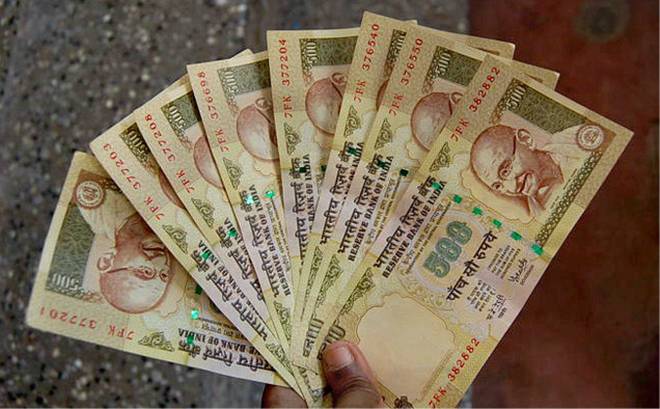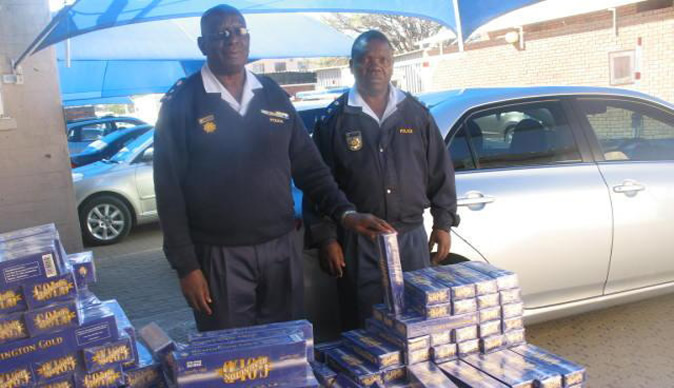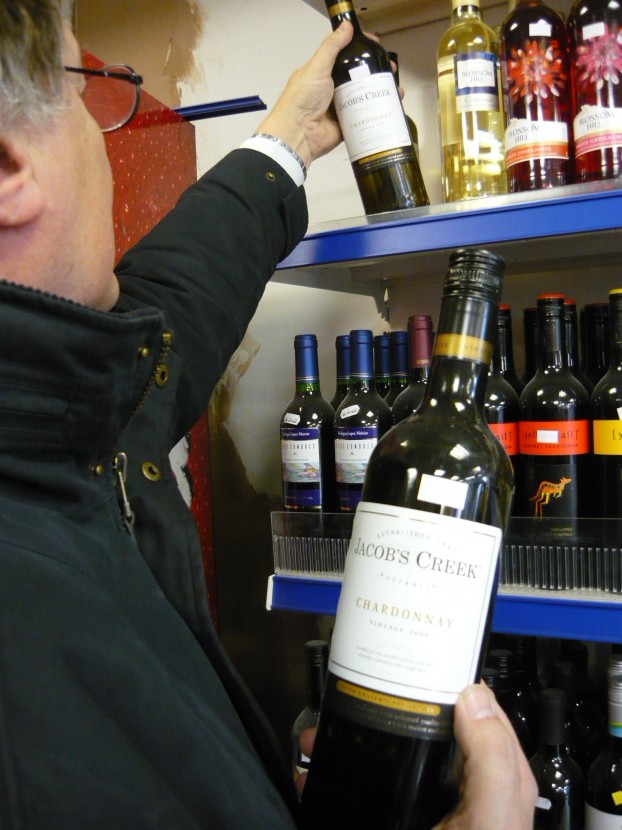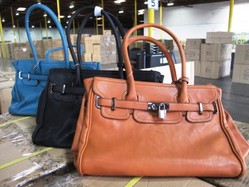
Tracking terror money
During the past few decades, intelligence and law-enforcement agencies around the world have found conclusive evidence of the increasing involvement of terrorism organisations in counterfeiting, piracy and smuggling activities to fund terrorist attacks. While several counterfeiting outfits are transferring portions of their proceeds to terrorist organisations, some of these are set up for the sole purpose of financing terrorism. Counterfeiting of drugs, luxury goods, cigarettes, etc. is a major source of contribution to funding. Similarly, smuggling of goods is used by terrorist organisations to raise funds and launder proceeds from other businesses, and use these to finance terrorism. According to a FICCI-E&Y report ‘Counterfeiting, Piracy and Smuggling — Growing Threat to National Security’, the costs incurred by terrorist organisations can be divided into direct and indirect costs. The direct costs incurred include those of materials used in attacks, e.g., explosives, vehicles, weapons, communication equipment, etc. The indirect costs incurred, which are usually much higher than direct ones, include those of running terrorist organisations, including recruitment, training, propagation of agenda, cost of inactive terrorist cells, etc. Investigations by law enforcement agencies have revealed that smuggling of gold, cigarettes, oil, precious gems and stones, music and film DVDs, narcotic drugs, etc., are major contributors towards financing of terrorism. Given their vast network, it is easier for organised crime outfits to raise funds through counterfeiting, piracy and smuggling.
http://www.thehindu.com/
Pack Expo 2013: new anti-counterfeit and coding technology
Last month’s Pack Expo in Las Vegas saw the launch of a several new products with anti-counterfeit and coding applications.
Roll print Packaging says it has developed an anti counterfeiting watermark for packaging films that provides “observable, hard-to-replicate embedded brand protection” for medical devices, pharmaceutical packaging and other high-value goods, according to the company. Called Ghost, the watermark can be used on a range of packaging – including pouches – and can be integrated into standard production processes. Complete Inspection Systems launched HD Barcode, which it describes as a 2D barcode for product authentication without the need for Internet or database look-ups. The company said the code can hold 175 times more data than a traditional 2D barcode – including images and html – and uses a proprietary reading application that allows users to scan and read product details at any location. Each HD Barcode includes a unique manufacturer identification code and only authorized users have the ability to scan and read encrypted data using either a smart phone or PC based application.
Lear More3 Booked for smuggling foreign cigarttes
- RGI airport
- Foreign cigarettes
- Abdullah Abdul Masood
HYDERABAD: Three persons from Kerala were caught by the customs sleuths at RGI Airport for smuggling Rs 5.2 lakh worth foreign cigarettes.
The accused Abdul Khadir, Mohammed Abdul Mutalia and Abdullah Abdul Masood from Kerala arrived here from Dubai in an Indigo flight on Monday morning. The trio was intercepted at the check area and caught with 66,960 imported cigarettes and 240 gutkha packets in their luggage. A case was booked against the trio.
Lear MoreMagherafelt trader given a suspended sentence for selling counterfeit CDs and DVDs
An online trader who was manufacturing and selling counterfeit CDs and DVDs was today given a four month suspended sentence (suspended for two years) at Magherafelt Magistrates court.
In a case brought by the Trading Standards Service of the Department of Enterprise, Trade and Investment, Mr. Terrance Simmons, who traded on eBay and via his own website “My Lady Gaga” pleaded guilty to a total of 8 charges under the Trade Marks Act 1994 and the Copyright, Designs and Patents Act 1998. Mr Simmons was also forfeited two computers and other equipment. In May 2012, Trading Standards Officers, accompanied by recording industry specialists, visited Mr. Simmons’s home and found that he had turned his spare room in to a small business for the manufacture and sale of counterfeit Lady Gaga CDs and DVDs. The officers seized a quantity of pre-recorded and blank CDs and DVDs and their associated art work. Computers, CD/DVD rewriters and master copy CDs and DVDs were also seized. Mr. Simmons had been operating a website “My Lady Gaga” which he used to sell illegal copies of both trademarked and copyrighted works all over the world. He also used various identities on eBay to sell the fake goods.
Lear More
SA cops tackle Zimbabwe cigarettes smuggling
THE South African Police Service (Saps) is today convening a multi-sectorial summit in Polokwane, Limpopo Province, to deal with rampant smuggling of cigarettes into that country by Zimbabweans.
The summit is being hosted by the Saps Limpopo provincial commissioner, the Directorate Priority Crime Investigation Limpopo, the Tobacco Institute of Southern Africa and the University of Limpopo to discuss ways to effectively curb the illicit trade in cigarettes in the province. The Saps’ Limpopo provincial spokesperson colonel Ronel Otto told Southern Eye in a telephone interview yesterday that today’s meeting objectives were aimed at devising ways of dealing with rampant smuggling of cigarettes from Zimbabwe through the Beitbridge border post. “The smuggling is very rampant to the extent that different brands of cigarettes are being smuggled into Limpopo Province in transit to Gauteng Province,” she said.
http:// bulawayo24.com/index-id-news-sc-africa-byo-36849.html
Lear MoreGovt mulls mandatory jail for cigarette smugglers
KUALA LUMPUR: The Customs Act 1967 is being considered for amendment to provide mandatory jail for smuggling and selling smuggled cigarettes by retailers and other outlets. This is among the measures proposed by the Customs Department to combat smuggling of illicit cigarettes which is reportedly caused Malaysia to lose about RM1.9 billion in tax revenue last year. Customs director-general Datuk Seri Khazali Ahmad said also proposed was the implementation of the Enforcement Transformation Programme involving patrol, mobile customs offices and listening posts to raise public awareness on the importance of eradicating smuggled goods. Also to be created was a comprehensive risk management system – National Targeting Centre (NTC) which would be loaded into the U-Customs system, being developed by the department, he said in a statement today.
Lear More

One in five buy counterfeit alcohol in UK – survey
Almost one in five of those surveyed by PricewaterhouseCoopers have bought counterfeit alcohol, despite 90% saying that counterfeiting is ‘morally wrong’. Around 18% of the 1,073 UK residents who answered PwC’ s survey said that they sometimes purchase counterfeit alcohol. While most of those people are thought to buy fake spirits, counterfeit wine has also been a problem at various tiers of the drinks trade in recent years, from fine wine fraud to suspect bottles in corner shops.
In July this year, England’s Local Government Association issued a warning to ‘shoppers looking to pick up a cheap bottle of plonk’ over the summer. Officials, it said, have seized various bottles of counterfeit wine across the country, including those branded as Jacob’s Creek and Blossom Hill.
http://www.decanter.com/news/wine-news/584419/one-in-five-buy-counterfeit-alcohol-in-uk-survey
Lear MoreSmuggled cigarettes and counterfeit watches seized by customs
Half-a-million smuggled cigarettes and hundreds of counterfeit designer watchers have been seized by customs officers from a South Wales storage facility. HM Revenue & Customs (HMRC) officers discovered the illegal Sila and Raquel branded cigarettes – known as “cheap whites” – during a raid on a unit in Bridgend town centre on Tuesday. The cigarettes, which have a duty loss of about £100,000, are illegal in the UK. A 50-year-old man from Pencoed, and a 57-year-old man from Birmingham, have been arrested and bailed for further questioning in March. In addition to the cigarettes, “hundreds” of fake Ice watches were recovered from the storage facility as well as £6,000 in cash. A spokeswoman for HMRC said the cigarettes could be linked to organised crime. “Tobacco smuggling is a global, highly profitable business controlled by organised crime groups, the proceeds from smuggling are often used to fund other forms of serious crime such as drugs and weapons smuggling and human trafficking. “The trade makes cheaper tobacco more readily available to the young and vulnerable, as well as taking trade away from honest businesses who only sell duty paid products.” She added anyone approached by a person selling tobacco products should be aware of the key signs that point to them being illegal. These include products without health warnings, or warnings not in English, products without the “UK duty paid” fiscal mark and unusual or foreign brands, such as those seized on Tuesday. She also said local trading standards were notified and will deal with the counterfeit watches. Anyone with information about cigarette smuggling can call the Customs Hotline on 0800 59 5000.
Lear MoreOnly 26% Brand Owners Participate in Anti-Counterfeiting Coalitions
Data shared at last week’s Intellectual Property Owners Association (IPO) annual meeting in Boston suggests that too few trademark owners are contributing to a united front against counterfeiting. Companies participating in this year’s IPO corporate benchmarking survey were asked whether they belong to anti-counterfeiting groups or associations, including industry coalitions that pool money to take action against counterfeiters. Of those companies that responded, just 26% said that they were members of such anti-counterfeiting groups. WTR has previously covered the challenges that brand owners face in getting consumers on side to help counter the copycats. The ultimate success of anti-counterfeiting lies in ending the demand for fakes, as well as cutting off the supply. To achieve this, consumers need to be educated on the socio-economic impact that counterfeiting can have on their everyday lives and those of others around the world; though for that to be a success, trademark owners need to provide better evidence of the links between counterfeiting and harmful activities such as organised crime, unsafe working practices and tax evasion, among others. Speaking to WTR back in issue 38, True Religion Brand Jeans general counsel Deborah Greaves suggested that the most effective way of getting this message across to the public is via “a wide-scale, media-based campaign… But a brand like ours just doesn’t have the resources to go out there and spearhead one by ourselves.”
Lear More
$210m-worth of fake Hermès handbags seized in US
US customs have seized more than 16,000 counterfeit Hermès purses and handbags that could have fetched about $211m at genuine retail prices. Customs and Border Protection (CBP) intercepted nine separate shipments from China and Hong Kong at the Los Angeles/Long Beach seaport complex in an operation between June 6 and September 17. The fakes are thought to have been destined for sale in southern California retailers, and would probably have been worth less than $300,000 at domestic street prices. A $14m shipment of fake Hermès bags was seized at the same port in February 2013 (see picture). Typically genuine Hermes bags – such as the iconic Birkin line – sell for between $9,000 and $18,000, said LA/LB’s assistant port director Elva Muneton in a PE.com report.
Last year, Hermès won $100m in damages from 34 websites that sold counterfeit copies of its products including Birkin and Kelly handbags, wallets, watches, belts and jewellery, while a Chinese national received a life sentence for running an operation making fake Hermès products in Dongguan, Guangzhou province.
Lear More


